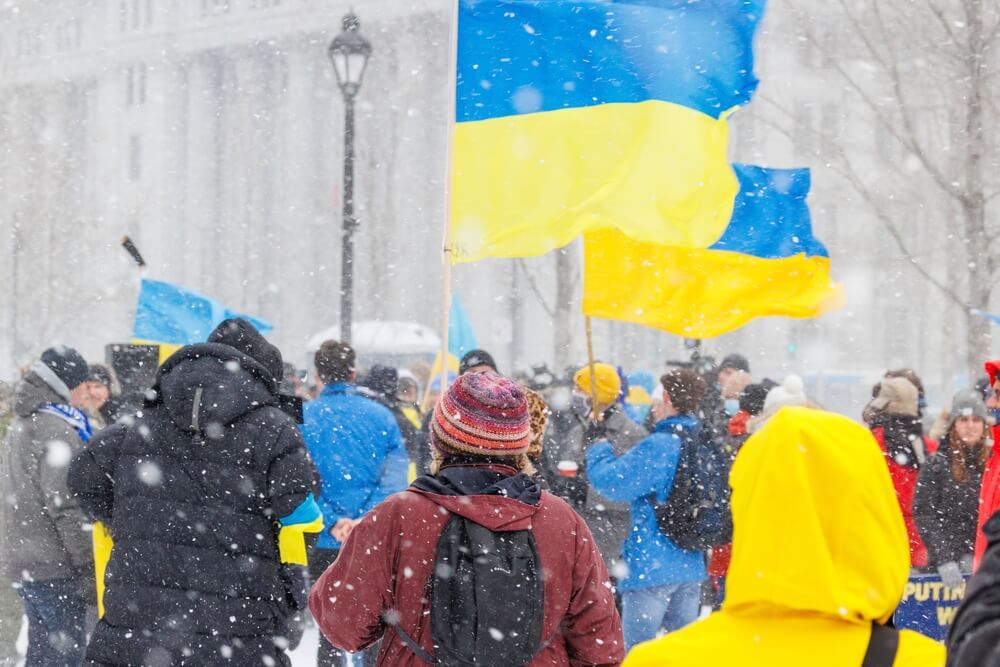In medieval times, aggressors cut the water supply and poisoned the wells. In the 21st century, they go for the electric supply.
The aggressors today know that electricity is a vital commodity; without it, civilized life fails, suffering begins. It is a war of special cruelty against the civilian population.
Russian President Vladimir Putin, whose forces haven’t fared well on the ground against the Ukrainian military, has turned to the civilian population. He has unleashed a vicious campaign against Ukraine’s electric grid.
The unfolding result — winter is just beginning — is untold suffering. There is no quick fix, no way to fly in electricity as you can fly in food and munition, and no equal retaliation. The vulnerability lies in the nature of electricity itself. It is a quintessentially complex, real-time system.
When an electric system is harmed, it is incapacitated for months and even years. A storm passes through, trees fall on the lines, and crews repair them quickly or bypass the damaged transmission.
But when the guts of the system — the sophisticated interplay of wires and substations, turbines, power electronics and myriad connectors — are damaged, power can be off for months, and that assumes that there isn’t a war raging.
This vulnerability has just been exhibited by an attack with firearms on a substation in North Carolina. A turbine was shot up, and 30,000 people will be without electricity for days and possibly weeks. That scenario is with the full resources of U.S. power companies, working in unison, to help restore power.
Imagine trying to get power back online with precision weapons raining on parts of a grid? Realize that much of a bulk power supply system is bespoke; that big things like turbines aren’t sitting on a shelf. They are usually made to order, mostly in China nowadays.
If you have the stomach for it, imagine the suffering in Ukraine at the start of winter: no light, no heat, no water because electricity pumps city water. Europe is set for a brutal winter, but nothing like the catastrophe unfolding in Ukraine.
First, Europe, like much of the world, is trying to move from fossil fuels to renewables. But it has been a messy transition, especially in Britain, where the expectations for a smooth transition were too rosy.
The British failed to build enough gas storage in the hope it wouldn’t be needed; shilly-shallied for years about committing to new nuclear power; and had an absolute confidence that the wind in the North Sea was a steady force.
Then things went wrong for Britain.
The first was the wind drought of last autumn in the North Sea and across Europe. It had a particular effect on Britain, which had to use more of its gas reserves to get through — and so was set for near disaster when the Russian war against Ukraine erupted nine months ago, pushing the price of gas up tenfold. British electric prices have soared, and the government has had to promise to pay substantial subsidies to affected households.
Germany, though, is the poster child for what not to do.
First, Germany has allowed itself to rely on Russia for nearly 40 percent of its natural gas — a principal fuel for electric generation — while, at the same time, closing its very reliable nuclear power plants. Germany also imports large quantities of petroleum and hard coal from Russia.
Germany isn’t only a problem to itself, but it also may be one for its neighbors in Europe. It is the richest country in Europe, and there is some fear that it will use some of its wealth to buy gas and push prices higher. That hasn’t happened, but it is a fear expressed across the energy sector.
Another fear is that as Germany needs so much gas to keep its industrial machine going that it will break ranks and cut a side deal with Russia, throwing Ukraine under the bus. But that hasn’t happened either.
The big challenge for Europe is how it will defend the remains of the Ukrainian grid, how fast it can help Ukraine restore power to the whole country, and how it might block the merciless aerial assault.
That is a political and security question for Europe and the United States: How far will the allies go in risking a nuclear war?
The lesson of Ukraine is clear: Protecting the physical infrastructure of the electric supply, the grid, is as much a part of national security as is cybersecurity.

 Follow
Follow
Leave a Reply